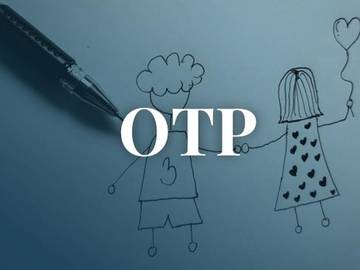
What does OTP mean?
OTP is an abbreviation meaning "one true pair/pairing."
Where did OTP come from?
In the realm of fandom, OTP refers to a fan-created coupling of characters: fans who think two characters make a great romantic duo envision those characters' lives together, and share their imaginings with other fans. The author of the Twilight series, Stephanie Meyer, creatively twisted her fans' OTP of Edward Cullen and Bella Swan by depicting them in different gender roles and "shipping" them—that is, pairing the two in a romantic relationship—as Beau Swan and Edythe Cullen in her book Life and Death.
Released as part of the 10th anniversary edition of "Twilight," "Life and Death" is a gender-swapped retelling of Edward Cullen and Bella Swan's classic love story. Meet Beau Swan and Edythe Cullen, your new OTP. Like Bella, Beau moves to Forks, Washington from sunny Jacksonville, Florida during his senior year of high school. Beau is your typical awkward and lanky teenage boy—with the WWE references to prove it—who falls in love with the pretty untouchable of the school, Edythe Cullen.
— Crystal Bell, MTV.com, 6 Oct. 2015
While OTPs are most commonly drawn from the sci-fi and fantasy genres, contemplation of OTPs can include cross-franchise characters and celebrities, as well. How about the OTP of singers Ed Sheeran and Taylor Swift? Or Edward Cullen and Hermione Granger? Daydreaming about your favorite characters or celebs hooking up in an OTP is engaging and, for some, it gets their creative juices flowing.
How is OTP used?
OTP is used as a noun, as in "Dwight and Angela are the real OTP of NBC's The Office." It often follows a possessive pronoun, indicating personal preference. And, despite the "one" in "one true pairing," OTPs can exist in the plural.
For my part, my realization about a decade ago that most of my favorite ships are essentially variants on the main pairing from Jane Austen’s Emma has had a profound effect on the way I see myself and my OTPs, and even the way I structure plots in my own fiction.
– Aja Romano, Vox, 19 Apr. 2019
Who's your OTP?
Words We're Watching talks about words we are increasingly seeing in use but that have not yet met our criteria for entry.




